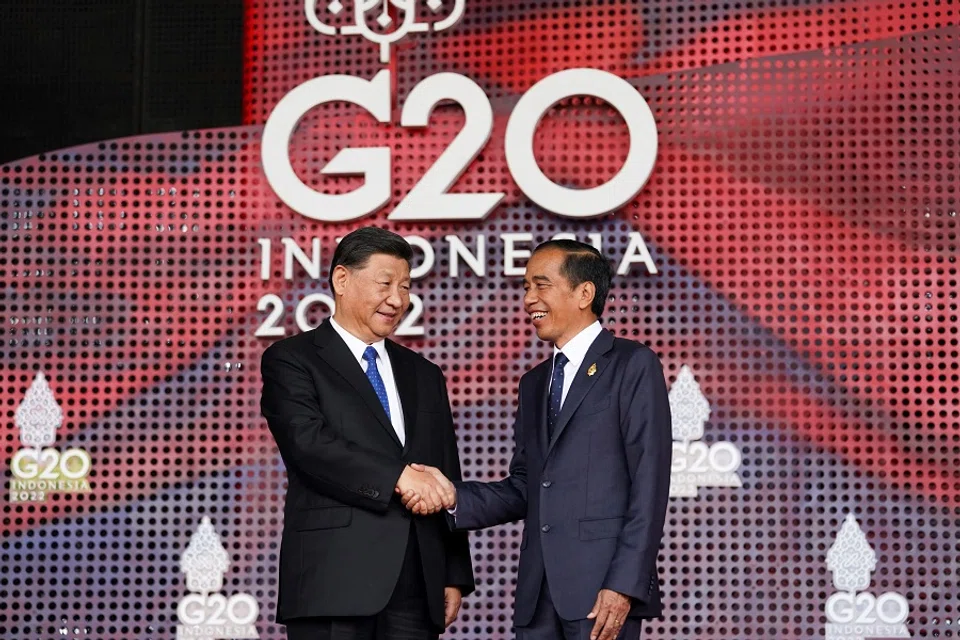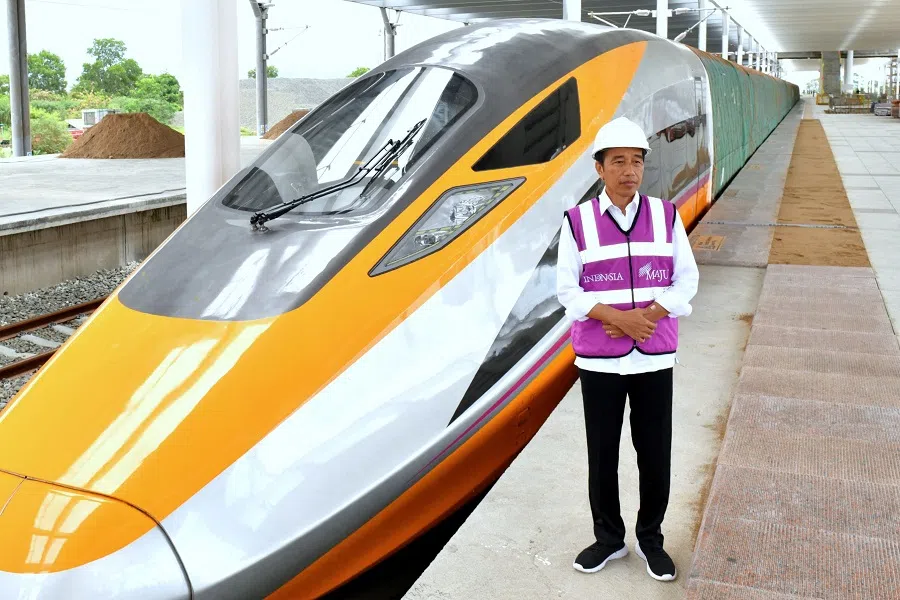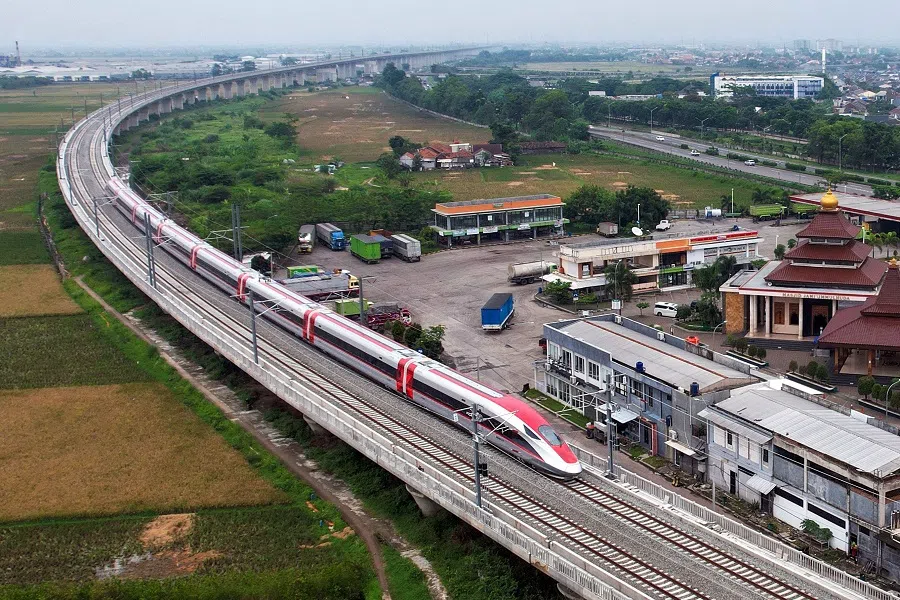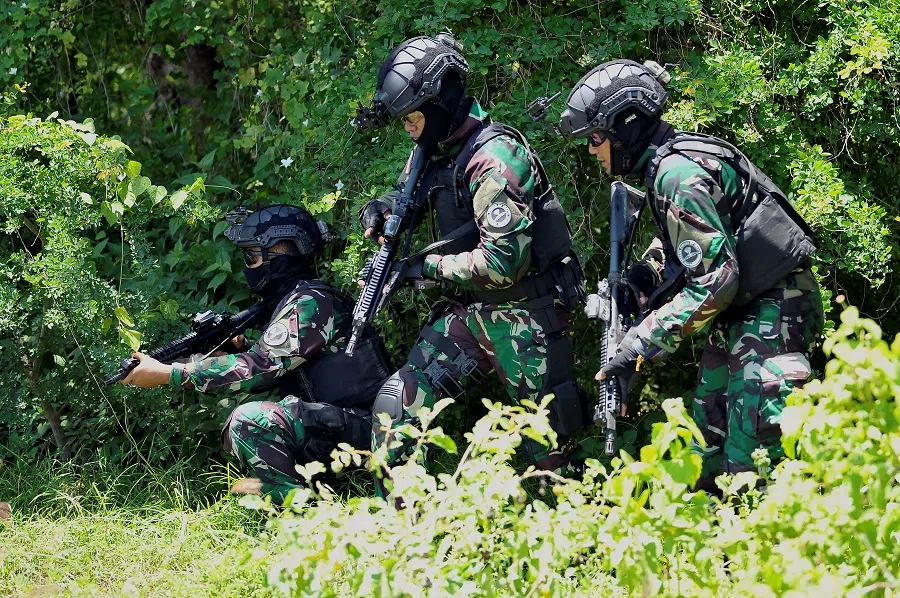Indonesia-China relations in review: After the G20 Summit
At the G20 Summit held in Bali under the Indonesian G20 presidency, Chinese President Xi Jinping and Indonesian President Joko Widodo showed warmth when witnessing remotely the test run of the Jakarta-Bandung High-Speed Rail and undertaking bilateral talks. However, while economic relations are on a strong and steady track, sovereignty issues in the South China Sea continue to be a thorn in one's side.

World leaders, including the presidents of China and the US, attended the G20 Summit in Bali under the Indonesian G20 presidency. US President Joe Biden was received at the airport by Indonesian Minister of Tourism and Creative Economy Sandiaga Uno while Chinese President Xi Jinping was received by Indonesian Coordinating Minister of Maritime and Investment Affairs Luhut Binsar Pandjaitan, who is higher ranked and has greater influence than Sandiaga. Does this mean that in terms of the economy, Indonesia thinks China is far more important than the US?
During the Chinese Communist Party (CCP)'s 20th Party Congress, Indonesian President Joko Widodo (Jokowi) told CGTN that he hoped the congress would make decisions that would not only benefit China but also the world, and contribute to regional and world stability. He added that Xi's success in alleviating poverty was a remarkable achievement.
Economy cooperation keystone of China-Indonesia cooperation
When asked about China-Indonesia cooperation, especially in terms of the Belt and Road Initiative (BRI), Jokowi said that the Jakarta-Bandung High-Speed Rail project was a flagship project of Indonesia-China cooperation. Since its launch in 2015, Jokowi has visited the site three times. He added that both countries would also advance economic cooperation in other areas, without giving details.
The Jakarta-Bandung High-Speed Rail project is critical to Indonesia and China not only because it is Jokowi's signature infrastructure project but also because it is the first key strategic project in Southeast Asia under Xi's BRI. Hence, the project must not fail.
Chinese realised investment in Indonesia also increased from US$6.28 million in 2015 to US$4.8 billion in 2020, making China Indonesia's second-largest investor, second only to Singapore and surpassing Japan.

There was no mention of military and security cooperation during the televised interview, which focused on economic cooperation.
Economic cooperation between Indonesia and China has deepened and expanded in recent years. Based on official statistics from Indonesia, between 2015 and 2021, the total value of trade between China and Indonesia skyrocketed from US$44.5 billion to US$110 billion, catapulting China to become Indonesia's largest trading partner. Chinese realised investment in Indonesia also increased from US$6.28 million in 2015 to US$4.8 billion in 2020, making China Indonesia's second-largest investor, second only to Singapore and surpassing Japan. This trend is likely to continue in Xi's third term.
He noted that the Jakarta-Bandung High-Speed Rail is about 80.4% complete and that the project must be finished by the middle of 2023 with no delay.
Bilateral talks between Xi and Jokowi were held during the G20 Summit, where both leaders also witnessed a video on a trial run of the Jakarta-Bandung High-Speed Rail. Before watching the trial run, officials-in-charge from both countries gave the leaders a report. The Chinese representative said that as a project under China's BRI, the Jakarta-Bandung High-Speed Rail project nurtures technical talents who contribute to Indonesia's industrialisation and drive Indonesia's development. The representative also said that the high-speed rail project has made good progress and that efforts will be made to complete it.
Indonesian representative Luhut's remarks were especially important. He not only explained the progress of the high-speed rail project, but also gave a more detailed account of the cooperation between both countries in other economic and technological projects. He noted that the Jakarta-Bandung High-Speed Rail is about 80.4% complete and that the project must be finished by the middle of 2023 with no delay. He also stated that when the time comes, Jokowi will invite Xi to attend the inauguration of the high-speed rail.
Should China-Indonesia relations worsen, that would affect Indonesia's domestic economy, and in turn its political stability.

Luhut emphasised that the railway will be ready by the middle of 2023, which is about seven to eight months away. We will wait and see if this happens.
He also added that Indonesia and China have at least cooperated in six major economic projects, including the Morowali Industrial Park in Sulawesi; the Weda Bay Industrial Park in Halmahera Island, North Maluku; the green industrial park in North Kalimantan; the Tsinghua Southeast Asia Center in Bali; the Indonesia-China "Two Countries, Twin Parks" project; and the Regional Comprehensive Economic Corridor.
Looking at all this, it is evident that China and Indonesia share close economic collaboration. In the near future, Indonesia may depend more on China than other countries in terms of trade and investments. Should China-Indonesia relations worsen, that would affect Indonesia's domestic economy, and in turn its political stability.
Friendly relations barring Natuna Islands conflict
One could say that Indonesia-China relations have been harmonious in recent years. Jokowi has visited China at least three times, meeting Xi each time; Xi has also visited Indonesia three times, the first being his visit to launch the Belt and Road Initiative in 2013, during the term of former Indonesian President Susilo Bambang Yudhoyono. Xi's following two visits were to attend the Asian-African Conference in 2015, and this year's G20 Summit, both during Jokowi's term.
... these friendly ties between China and Indonesia are threatened by the Natuna Islands dispute.

Two years ago when Covid-19 started raging, Indonesia managed the situation with China-produced vaccines. When the US condemned China for oppressing the Uighurs in Xinjiang, Indonesia did not align with the US, and along with 19 other member states objected to discussing China's Xinjiang policies at United Nations meetings.
However, these friendly ties between China and Indonesia are threatened by the Natuna Islands dispute. Indonesia's exclusive economic zone (EEZ) overlaps with the area bordered by China's nine-dash line. Since 2016, Chinese fishing boats spotted within the EEZ have sparked disputes between China and Indonesia. The latest report about the dispute was in 2019. Fortunately, the dispute did not evolve into a military conflict.
The Indonesian and Chinese navies have worked together before. In April 2021, an Indonesian submarine sank in the waters off Bali, and the Chinese navy helped with salvage efforts. China considered this military security cooperation, but Indonesia considered it humanitarian assistance. Overall, military cooperation between Jakarta and Beijing is very limited, which might have to do with events in the Suharto era.
Indonesia's military and conservative Muslims still accuse the Communist Party of Indonesia (CPI) of starting a coup known as the 30 September Movement (G-30-S), and that the CPI was supported by China. While this happened way back in 1965, and diplomatic relations resumed in 1990 between Indonesia and China in the Suharto era, anti-government persons and conservative Muslims still attribute the coup to the CPI and China, and use it as a weapon against the government.
This chapter in history has been a stumbling block in military cooperation between Indonesia and China, but the biggest stumbling block is the Natuna Islands issue.
While Indonesia is a non-aligned country and does not have alliances with any big country, and objects to foreign countries using its military bases, it wants to be a big power and a leader beyond this region.

While Indonesia is a non-aligned country and does not have alliances with any big country, and objects to foreign countries using its military bases, it wants to be a big power and a leader beyond this region.
When it comes to territorial integrity and national defence, there has been frequent military cooperation between Indonesia and the US going back to Suharto's time. Indonesia's military weapons mainly come from the West, and there is also the Garuda Shield joint military exercises with the US. The joint military exercises last year and this year can be said to be the largest in Indonesia's history, involving over 4,000 personnel.
Looking at Indonesia-China relations, there has been great progress in economic cooperation, but military and security cooperation has progressed very slowly, and seems stagnant in comparison. The fact is that Indonesia-China relations are complicated.
Indonesia's issues with China workers and the Chinese community, as well as the rise of identity politics in Indonesia and the prejudice of Indonesians towards China and local Chinese, have all affected the development of Indonesia-China relations. However, if the South China Sea issue can be resolved, that would be a big help to improving Indonesia-China relations.
This article was first published in Lianhe Zaobao as "二十国集团峰会后的印中关系".
Related: Indonesian elites and the general public have different views of China | Can Chinese capital and technologies jumpstart economic development in Borneo? | Will China invest in Indonesia's new capital 'Nusantara'? | Why Indonesia's Muslim organisations are not critical of China's Xinjiang policy | Indonesia's response to China's incursions in North Natuna Sea unsatisfactory: Indonesian academic | Indonesian academic: China's recent foray into the North Natuna Sea is problematic





